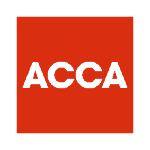BUSINESS GUIDES
Freelancing in Ireland Tips and Tax Matters
Freelancing in Ireland – Is It For You? Top Tips and your Tax Obligations
Freelancing is on the increase in Ireland with many Irish people choosing to work in addition to their full-time job as well as those taking a leap to go into freelancing full time. Anecdotally, the rise in remote working, property prices/long commutes and demand for a better work/life balance are all influencing this growth. This article will look at some of the opportunities, challenges and obligations you should be aware of on your freelance journey.
So why become a freelancer? There are probably as many pros as there are cons. And it is most definitely not for everyone.
Pro’s and Con’s of Freelancing
You’re the Boss
- Pro – You work for yourself. You decide your working day, the clients you want and the fees you charge.
- Con – You are fully responsible for the bottom line and if you don’t keep a good pipeline of clients you simply won’t earn money.
Doing exactly what YOU want
- Pro – You know what you are good at. And what you enjoy. Now you can do what you always wanted. Put into practice your career ambitions and goals. Now you can finally apply yourself to what you have spent your life building.
- Con – Remember the customer is always right? You now need to work on your expectations of your clients and their expectations of you. There is no calling in sick, you are now responsible for delivering to your clients. Unhappy clients means delayed payments…
Flexibility & Control
- Pro – You may not be richer yet, but you are directly in control of your career ambitions and all going well you will be turning over a good income. There is no cap. The more you work the more you earn. You can find opportunity everywhere.
You can also afford to be flexible on your working hours and no longer have that long commute to greet you every day. You will also be able to meet more people, take time off when you choose and feel a strong sense of accomplishment. - Con – Since the buck now stops with you, it can be quite stressful. Especially when you are a fledgeling business. Failure to meet targets and stay cash flow positive can literally keep you awake at night.
As a freelancer, you now have to manage your own tax affairs like income tax (if you are a sole trader) and accounts (if you decide to incorporate your business). All the pitfalls and worries that come with dealing with Revenue can be burdensome if you are not prepared.
Is Freelancing for you?
It depends… putting the business questions aside for a moment. As an individual, can you motivate yourself to go out and network, put yourself in front of people and pitch your ideas, devote time to developing content and sticking to a solid business development plan. All the while, delivering for your clients. If you have structure and the self-discipline to stick to your goals/targets, then freelancing is an option for you.
On the other end of the spectrum, if you find yourself lacking in motivation, unwilling to put yourself out there and simply hoping to get a call for a major project without looking for it, then you will be in for a surprise. And not a pleasant one. As a freelancer, you need to be used to handling pressure and deadlines. As a freelancer time is literally money.

Your time is best spent on doing what you do best and generating income and finding new clients for your business.
Our top tips for aspiring Freelancers
Look before you leap.
Try out freelancing part-time before you quit your full-time job. You will get a taste for what is involved.
Focus on what you are good at
You can’t be all things to all people. Find your niche and do some market research to see if there is a need. Most businesses fail as there simply isn’t a need for it.
Prioritise carefully
Don’t start designing logos, building websites and printing those business cards until you are certain about what you can offer. There are some horror stories out there of people investing thousands of euro / and weeks/months on web design but not be able to clearly describe what their business does. Before you do something don’t ask the question “Can I do this?”. Ask “Should I do this?”.
Budgeting is key
Not just for your finances but also your time. Work by the clock and track time spent on client projects. Don’t be a busy fool. And while you are at it, keep your bookkeeping/receipts in order. You must keep all documents relating to your finances for six years too.
Set yourself goals
Be accountable and stick to them. Build a support network around you of family, friends and industry peers. Share your journey and seek support.
Know when its time to delegate
This is often very difficult. Your time is best spent on doing what you do best and generating income and finding new clients for your business. If you find yourself getting bogged down in administration then it is high time to get some help. For your accounting and bookkeeping needs, we are here for you.
Tax and Accounting Considerations
As a self-employed freelancer, you will have to submit your income tax returns in October each year. Although depending on when you register you don’t have to file a return in your first year but you will have to file for year one and year two together in your second year. This is where preliminary tax comes in. Preliminary tax is your estimate of the Income Tax, Pay Related Social Insurance (PRSI) and Universal Social Charge (USC) that you expect to pay for a tax year. See some information below from Revenue.You must make sure that you do not underpay your preliminary tax, or you may be charged interest. The amount of preliminary tax for a year must be equal to, or more than, the lowest amount of the following:
- 90% of the tax due for that tax year
- 100% of the tax due for the immediately previous tax year
- 105% of the tax due for the tax year preceding the immediately previous tax year (often called the ‘pre-preceding year’). This option only applies where you pay by direct debit. It does not apply if the tax due for the pre-preceding year was nil.
For late payments, you will be charged interest for each day (or part of a day) past the deadline.
More info from Revenue.ie
You can choose to handle your accounting and bookkeeping yourself or outsource some of it to us. We will ensure compliance with Revenue (and the CRO if applicable) so you can focus on your business.


